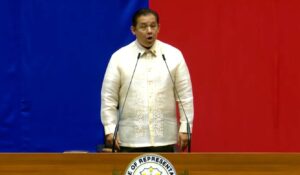
In a strong push for wage reform, a government workers group in the Philippines is calling for a significant increase in the national minimum wage to P33,000 per month. This request follows President Ferdinand “Bongbong” Marcos Jr.’s directive to review minimum wage rates across the country, amid rising inflation and economic pressures.
A Nationwide Call for Wage Adjustment
The Confederation for Unity, Recognition, and Advancement of Government Employees (COURAGE) is spearheading the campaign for higher wages, demanding that the wage review include government workers as well. Santiago Dasmarinas Jr., the national president of COURAGE, emphasized the need for a wage based on a living wage, not just the minimum, stating, “Our call is for a national minimum wage based on a living wage — P33,000 across the bureaucracy.”
Comparisons and Implications
The proposed P33,000 monthly wage equates to a daily wage of P1,650, assuming 20 working days per month. This figure is more than double the current daily minimum wage of P610 in Metro Manila and more than four times the minimum wage in the Bangsamoro region. Such an increase could significantly impact the standard of living for government employees, who are often at the economic front lines.
Legislative Requirements and Government Response
According to the Department of Budget and Management (DBM), any wage increase for government employees will require congressional approval. DBM Undersecretary Goddes Hope Libiran stated, “The new round of salary increases for the government shall require legislation, similar to SSL (Salary Standardization Law). If this law is passed, DBM will find a way to fund it.” This process underscores the complexities involved in adjusting wages, which involve both legislative action and budgetary considerations.
Broader Economic Context
The push for higher wages comes at a time when the Philippines is grappling with an inflation rate of 3.7% as of March. Rising living costs have become a central issue, influencing recent political outcomes and government policy directions. President Marcos has prioritized reviewing and potentially adjusting the wage structure to make it more reflective of current economic realities and to ensure competitiveness with the private sector.
Potential Outcomes and Challenges
If successful, the wage increase would not only provide immediate financial relief to thousands of government workers but could also set a precedent for future wage policies in both public and private sectors. However, the proposal also presents challenges, including the need for sustainable funding solutions and the potential impact on government budgets and inflation.
Conclusion
The debate over raising government workers’ wages in the Philippines is part of a broader discussion about fairness, economic equity, and the role of wages in economic stability and growth. As the government considers these changes, the outcomes will likely have long-lasting implications for the country’s labor market and economic health.





















Comments are closed for this article!